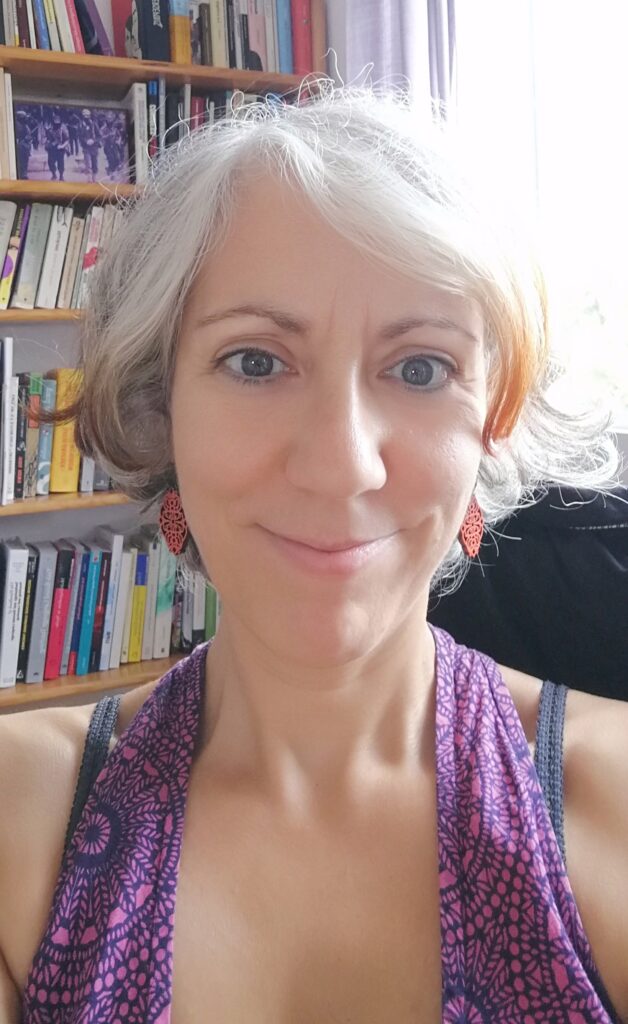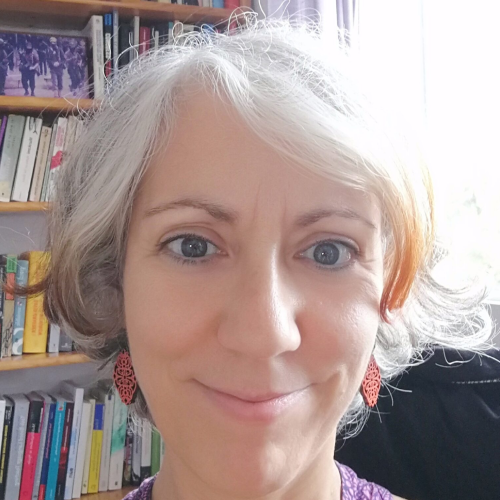

Laia Canals is an Associate Professor and course coordinator at the Universitat Oberta de Catalunya. She works within the Centre for Modern Languages and at the Faculty of Arts and Humanities. As such, she says it’s a great context from which to work on international exchanges.
Laia began looking at VE from a linguistic approach, which varies from what VE is currently being created for. About seven years ago when she began experimenting with VE, she found herself trying to convince students and professors at her institution that this was an authentic way to teach languages. She believed having students practice in authentic contexts was the way forward.
Initial research into virtual exchange
One of the first pieces of research that Laia undertook was a comparison between students who participated in a virtual exchange and others who did not. The improvement of those who did a VE was markedly better than those who had not. She used this research as evidence in support of adopting the virtual exchange methodology in her institution. These findings were later confirmed in a later article, where she demonstrated that metalinguistic reflection and feedback mechanisms in VEs have a measurable impact on learning outcomes.
Besides the oral skills that improved, Laia noted that there was a general willingness to communicate in English demonstrating the students were beginning to appreciate that it was useful to learn English to communicate rather than just to pass an exam and graduate from university. There was also an observed improvement in interactional competence, metalinguistic awareness, and intercultural communication.
The challenges of recruitment for virtual exchange
At first, Laia recruited students on a voluntary basis, and this was challenging at times. Especially when students complained about a lack of engagement or confusion with timings from their partners. By the end, they began to understand the benefits and overcome the frustrations. There was one instance when a student in the Spanish group became frustrated because her Canadian partner was always late to their meetings. They decided to exchange short video messages asynchronously between sessions. This adaptation resolved the scheduling issue and also resulted in richer exchanges.
For her institution, it was a little different. On the one hand, they could see and appreciate the benefits of VE from a linguistic perspective. But it was also true that the evidence was lacking at the time. Her research and evidence helped to push things in the right direction.
The accreditation hurdle
The biggest challenge that is ongoing and unresolved thus far, is the issue of how to credit these courses. Accreditation remains the main sticking point. Laia has used Open Badges as recognition of participation in a VE, but students really want to receive credits. The only way, she says, is by embedding them into existing courses so that they make up a part of the required assignments for the course.
The next step should be the creation of a shared European accreditation framework. In this way, VEs can be recognised across universities similarly to Erasmus exchanges. This would make them scalable and accessible to a wider range of institutions and learners.
“Ideally for me, the students should receive proper credits for this type of course, the same way they do when they participate in an Erasmus scheme abroad. This is something I will pursue and see as an issue that needs a resolution across the board.”
Despite having allies within her institution, Laia says it takes a long time to embed institutional credits like ECTS credits into courses containing a VE element. This is even more the case if virtual exchanges were to be standalone courses.
“This is an ongoing issue for me and my research, but I am not giving up as I sense that I am making progress on this front. Not only, but for something like this to happen, it cannot be just within my institution. Clearly it is something that needs to be adopted across other institutions too.”
Laia believes a Europe-wide approach to accreditation is necessary, possibly in the form of alliances.
UNICollaboration conference: June 2026
At the UNICollaboration conference taking place in Limassol next June, Laia says she will speak about her research, and the myriad of different perspectives into virtual exchange that she is looking at. This will be not just from linguistic perspectives, but also from a multi-disciplinary perspective, including intercultural communication skills and include what happens when many different languages are used during a virtual exchange, (translanguaging).
She is also very interested in how these virtual exchanges help include learners from different backgrounds and different countries, and when using the common foreign language as the lingua franca of the exchange; also when targeting countries whose students don’t often get the chance to participate in a VE.
The idea would be joining forces with countries with less commonly known minorities to have students exchange their experiences as speakers of minority languages (such as Catalan in Spain or Kurdish in Turkey) in the hope that it would open global learning experiences to those learners.
